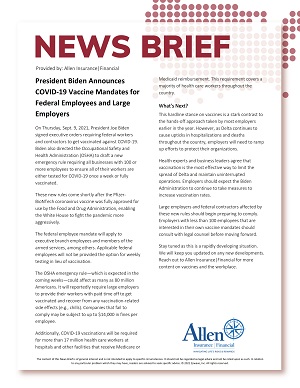Whether you need life insurance depends partly on your stage of life. If you’re younger, you may have less need for coverage. As you move along the path in life, you’ll likely have more of a need. And, as your responsibilities lessen, your need may decrease.
Here’s a look at how your phase of life affects your life insurance needs.
Young and Single
As a young adult, you likely don’t depend on others for financial support. In most cases, your death wouldn’t create a financial hardship for others, making life insurance a low priority.
You could argue that you should buy now! The cost of life insurance factors in several things, including your health. At this point in your life, rates will probably be low. Now, while this may be a valid argument if you’re at higher risk for medical conditions (e.g., diabetes) later in life, for now, you may want to consider investing the money you’d spend on premiums.
Some exceptions to this include:
• You have a mortgage or other loans with a cosigner. Your death would leave them entirely responsible for the debt, so you may want insurance to cover this.
• You have a child or you’re supporting your parent/grandparent. As they depend on you, life insurance could provide support for them if you were to die.
Married . . . with Children (Or Without)
Married couples without children have little need for life insurance, especially if you both contribute equally to the household and don’t have a mortgage.
Once you buy a home, though, it’s a different story. Even if you both have well-paying jobs, the mortgage debt may be more than one person can handle on a single salary. And other debts, such as credit cards, can add to financial worries. In this situation, both of you should consider buying a modest amount of life insurance to provide financial support.
If you start a family, your life insurance needs are at their peak. In most cases, it’s appropriate for both parents to have life insurance.
If your family has a single income, it is completely dependent on that salary for financial security. In this case, both parents should carry enough life insurance to cover lost income or the economic value of lost services—like having to pay for childcare if the stay-at-home parent dies.
Dual-income families need life insurance, too, because it’s likely the surviving spouse will suffer financial hardship keeping up with household expenses and childcare costs.
Separation Anxiety
If you get a divorce, you’ll need to decide what to do about your life insurance, both from a beneficiary and coverage perspective. Add in dependents and it becomes more complex.
Keep it simple. If you don’t have children, it may be as simple as changing your beneficiary and adjusting your coverage.
Work it out. If you have children, the custodial and noncustodial parents will need to work out the details of your life insurance. You’ll want to make sure your children—and not your ex-spouse—are provided for in the event of your death. This may mean purchasing a new policy or changing the beneficiary to your children. If you and your ex-spouse can’t agree, the court will decide for you.
Climbing the “Corporate” Ladder
So, how do career changes affect your life insurance needs? It’s important to review your coverage whenever you leave your employer or start your own business.
When you leave your job, any employer-sponsored group life insurance coverage typically ends. Find out if you’ll be eligible for group coverage with your new employer or look into purchasing coverage yourself. You may also be able to convert your group coverage to an individual policy; it may be more expensive, but it’s a good choice if you have a preexisting medical condition that may prevent you from buying life insurance coverage elsewhere.
You should review your coverage amount, too. Your policy may no longer be adequate, especially if you’ve incurred more debt and expenses. If you own a business, consider your business debt. If your business isn’t incorporated, your family could be responsible for those bills if you die.
The Golden Years
Ah . . . retirement! Once you hit these golden years, your life insurance needs may change again. If fewer people depend on you financially, your debts have been paid, and you have substantial financial assets, you may need less coverage than before. But it’s possible that your life insurance needs will remain the same. The proceeds from your life insurance can be used to pay for your final expenses or to replace any lost income for your spouse (e.g., social security or a pension). Proceeds can even be used to pay estate taxes or as a charitable donation.
No matter what phase of life you’re in, it’s a good time to review your options and decide whether you need coverage and, if so, how much. If you’d like to discuss options, please reach out to me or my office.
This material has been provided for general informational purposes only and does not constitute either tax or legal advice. Although we go to great lengths to make sure our information is accurate and useful, we recommend you consult a tax preparer, professional tax advisor, or lawyer.










